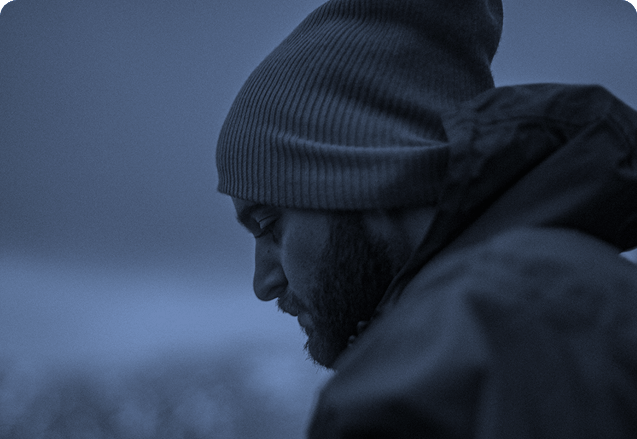Ask yourself: is your habit making you lose sleep, feel tired, detach from friends, or become less productive?
When the COVID-19 crisis swept into our world, our ‘usual’ lives were thrown into chaos. Overnight, we had to find new ways to work, communicate and co-exist – all without the external structures (like our gym sessions, school hours or social connections) that previously helped keep us sane.
While some of us have seized the opportunity to take up running or meditation, many others have found themselves slipping into…erm…not-so-healthy habits. As we’ve struggled to find a new normal in an abnormally stressful time, we’ve reached for the things that bring comfort or distraction – whether it’s a sugary snack, sneaky cigarette, an online punt, or an extra glass of wine (or three).
At first this was easy to justify (this is an ‘unprecedented’ crisis, right?). But as the weeks have dragged on, some of us are starting to feel a wee bit uncomfortable about the impacts of our new habits, and we’re wondering when and how our self-control will reappear.
So, how do you know if a habit really needs changing?
The first thing to assess is whether your habit really is unhealthy (or unhelpful) for YOU. In general, if you feel guilty about it, that’s a bit of a red flag! But equally, a habit isn’t helpful if it’s started to interfere with your life, or if you’re becoming too reliant on it. Ask yourself: is your habit making you lose sleep, feel tired, detach from friends, or become less productive? Is it compromising your health or finances, or making relationships difficult?
It could be the extra drink that makes it hard to get up in the morning, or the gaming habit that’s stopping you from connecting with real people. Habits are very personal too – what’s perfectly acceptable for one person can be disastrous for another. You need to be honest with yourself about how your habits affect YOU (and those around you). Deep down, you’ll know when you’ve reached that tipping point.
Once you’ve identified the habit, it helps to uncover the ‘why’.
Why do we do things that aren’t good for us? Well, habits are essentially learned responses to triggers (or cues), such as situations that make us feel stressed, unhappy or anxious. When confronted with a tricky situation, we instinctively try to do something (anything!) that alleviates our discomfort, even if we know it’s only a temporary fix. The more we do that ‘thing’, the more habitual it becomes.
The current COVID-19 crisis is, in itself, a stressful situation for everyone, so it’s little wonder so many people are seeking comfort. We’re facing all sorts of challenges, from money worries and housing insecurity, to conflicts within our relationship or family. A lot of these problems aren’t COVID-19 specific, but they are likely to be exacerbated by things like lockdown and economic uncertainty – so don’t beat yourself up if you’re finding things especially tough.
To figure out your triggers, try to look at when you engage with your unhelpful habit, and ask yourself what feeling you’re attempting to deal with. Seeing the pattern is the first step towards changing it – and sometimes the feelings that bother us the most are the ones we’re not acknowledging.
What are some strategies that can help regain the balance?
The one that works best for you will depend on your situation, but here are a few to consider.
Notice your thinking.
If you’re overwhelmed by anxious or negative thoughts, it can help to write them down (and even rate how severe the feeling is out of ten). By transferring your inner monologue onto paper (or your mobile phone) you can keep track of how your feelings fluctuate through the day and week (and what people or factors set you off). You can also gain a bit of perspective and see when you’re catastrophising or engaging in negative self-talk or irrational thinking. By picking up these reactions, you’re in a position to see if they’re valid, or can be challenged.
Talk it through.
A sounding board can be enormously helpful when you’re trying to sort through your feelings – so don’t bottle them up! Make time to call someone to talk to, or if you’re struggling to reach out, text a loved one to let them know you need support. If you’re stuck for someone to call, or don’t want to put pressure on your loved ones, you can always call Lifeline on 13 11 14 (24/7) or opt for phone or online counselling (see the services at the end of this article). Sometimes simply verbalising your inner storm can help to calm it.
Make your habit inconvenient.
This is more a practical tactic, but one that can help break unhelpful patterns! Essentially it means putting environmental barriers or distance between you and the ‘thing’ you no longer want to do. Want to cut down drinking? Don’t keep alcohol in the house. Want to stop obsessing over social media? Don’t sleep with your mobile phone in the room. The harder you have to work to engage in the behaviour, the less likely you are to do it.
Replace your old habit for a (more helpful) new one.
Can’t resist a drink in the after-work wind down? Go for a walk or do a guided meditation instead. Finding it hard to limit screen time? Rediscover puzzles or books, or challenge yourself to declutter that drawer you’ve been ignoring for the last million years. It’s about reminding yourself that there are OTHER ways to respond to stress and anxiety apart from the ones you’ve become accustomed to.
Create structure and boundaries.
Just because our usual routine has been disrupted doesn’t mean we can’t create structure in our day to make life feel more rhythmic and reliable. For example, confining work to a certain part of your home, changing out of pyjamas and into work clothes, starting an exercise challenge, joining an online club, or committing to a weekly online catch-up with friends. The world at large may feel like mayhem, but your personal world doesn’t have to.
Find a new way to treat yourself.
The infuriating thing about so many unhelpful habits is that they feel so good at the time!! We tend to justify things like alcohol or chocolate by saying we ‘deserve it’. The trick here is to switch out the ‘reward’ for something else that feels like a treat. It could be a relaxing bath, a new book, yummy takeaway or a TV binge – whatever will make you feel good, but in a way that’s actually good for you.
Need some support? Here are some of the services available.
Lifeline
13 11 14
24/7 support line. Free call.
Or you can visit our Get Help page to see the local services available across the Northern Beaches.
National Alcohol and Other Drug hotline
1800 250 015
Help for alcohol and other drug issues.
Gambling Helpline
1800 858 858
Available 24 hours a day if you need to speak to someone about problem gambling.
1800RESPECT
1800 737 732
National free, 24/7 hotline for anyone experiencing or at risk of domestic violence.
Men’s Referral Service
1300 766 491
Help for men to stop using family violence.
Mensline Australia
1300 789 978
Support for men with family and relationship difficulties.

